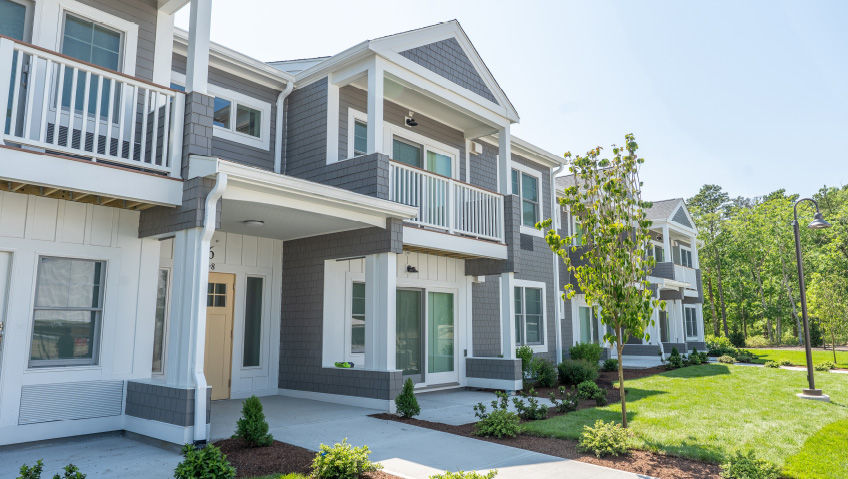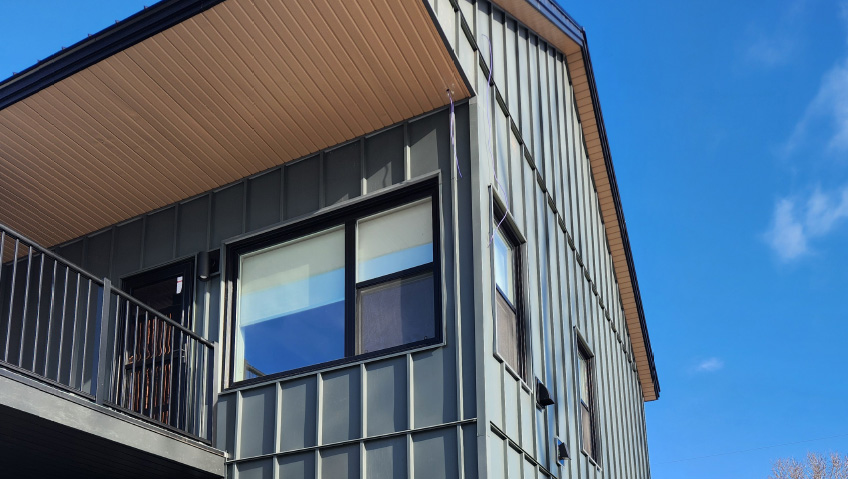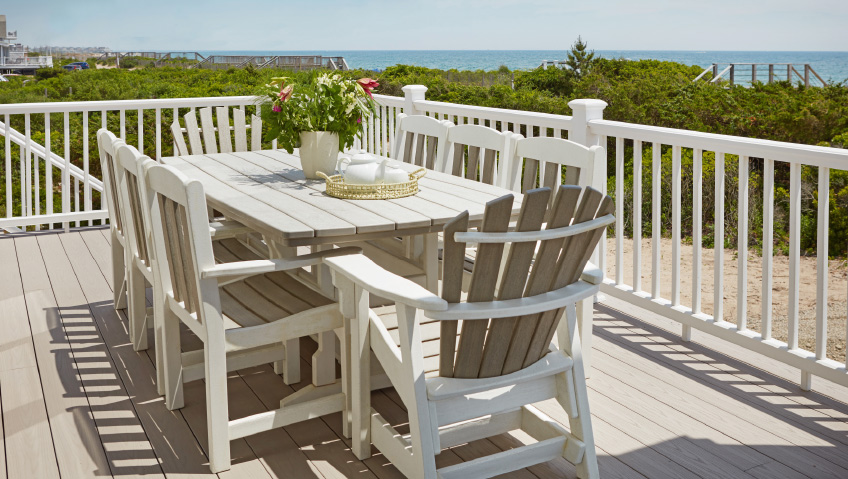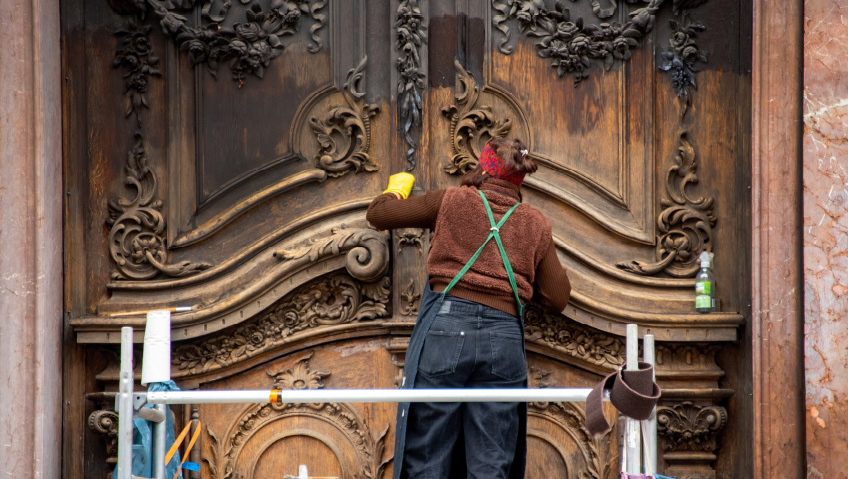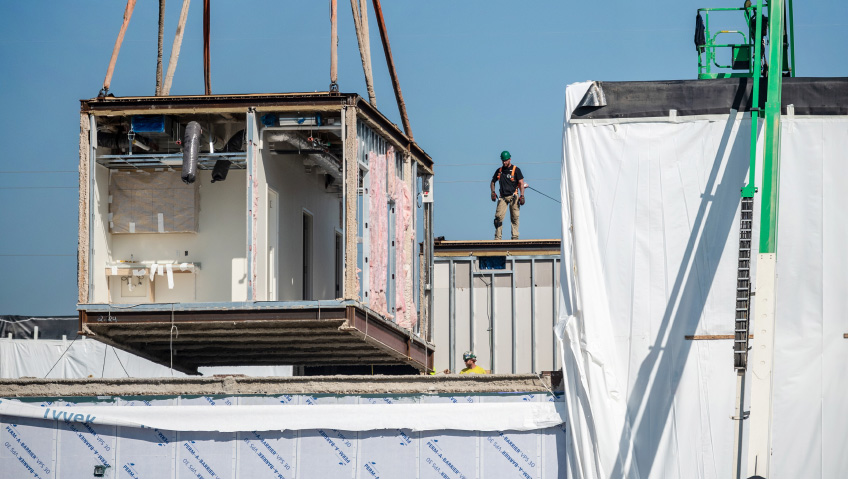As the demand for housing increases throughout the United States, Ritz-Craft Corporation of Mifflinburg, Pennsylvania is rapidly expanding its exciting world of mid- to large-scale modular fabrication, with access to four exceptionally well-equipped factories that employ over 1,000 people. Having established a fine-tuned ecosystem of self-sufficiency within its larger group of vertically integrated sibling businesses, the third-generation family company has spent just over seven decades transforming its industrial modular fabrication processes into a masterclass in elegant efficiency and quality.
While real estate markets adapt to the concept of modular homes as a beneficial and beautiful solution to the housing crisis, buyers are learning that modern modular units offer far more than their spartan prefabricated predecessors. Ritz-Craft delivers tremendous value and modern style across 25 states from the Northeast to the mid-Atlantic, Midwest, and South on a level rarely seen in this trade. Working solely in timber, its buildings typically range from 15,000 square feet to 150,000 square feet.
Now, as one of the country’s largest in its field, this family business is gearing up to cover ever greater distances for its customers.
Ritz-Craft Corporation and Ritz Craft Commercial (RC2) are both members of the John Brothers Holdings LLC family, a large group of vertically integrated companies that work in tandem to provide a total project delivery model. Marked by a distinct talent for collaboration, this team works closely with project owners, engineers, and architects to deliver comprehensive services in off-site single and multi-family homes. It also builds low-cost military housing, assisted living, senior housing, motels, and hotels for companies like Holiday Inn Express and others.
Of these building types, multi-family is the firm’s fastest-growing sector. “We are a construction service, not a product. So we will build whatever is designed and complete whatever your vision is,” says Ray Cudwadie, President of RC2. Cudwadie has been in the modular construction industry for over 40 years, and he takes a down-to-earth, humble approach to business and to leadership.
Starting its journey as a trailer fabricator in 1954, John Brothers Holdings is now owned by the sons of one of the founders, Paul and Eric John, who have been joined in the business by the third generation. “Our success is solely reliant upon Eric and Paul John and their vision, what they built up here,” says Cudwadie. “They give us the reins and say, ‘Go do it.’”
As a result of this commitment to excellence, the company always has exciting projects underway. One of these, for a longstanding client, is a multi-building apartment complex, The Loop in Traverse City, Michigan. Loop 1, a small 3-story apartment, was recently completed and will be followed by Loops 2 and 3, which are 5-story podium builds (4 over 1). Fabricated partially in Pennsylvania and Michigan, the final product will be delivered to Traverse City, complete and ready for installation. These will be followed by further construction at Loops 4 and 5, starting in the first quarter of 2026.
One of the greatest advantages of using RC2 means and methods in this region of northern Michigan is the speed of delivery, which is vastly improved by the fact that off-site construction is unhampered by extreme weather conditions and harsh winters.
The company is especially proud of the work it is doing for the Tunnel to Towers Foundation, an organization that provides mortgage-free homes to Gold Star and fallen first responder families and builds specially-adapted smart homes for catastrophically injured veterans and first responders. RC2 is currently completing a project for the foundation in Harrisburg, Pennsylvania. “I’m very honored to be doing a mission-based project. It’s not just putting the pieces together; we’re helping to eradicate [veteran homelessness] in the United States,” Cudwadie says. “We’re very honored to be associated with them. We look forward to getting our first project completed and then hopefully we’ll do others as we move forward.”
Ritz-Craft’s multi-family work is also driven by the desire to provide much-needed workforce housing. “Workforce housing is a huge need across the country and a staple for industry in the United States. It’s great that we can provide a sound quality and effective product to address workforce housing needs across the country,” says Michael Bussiere II, Vice President of Business Development.
Even with such high demand, the company’s seamless, integrated processes allow it to execute large projects across its entire footprint. “Ray is process-driven, very structured in helping enable success but with flexibility to tailor our systems to customer needs,” Bussiere continues.
One of the team’s most rewarding recent projects on Martha’s Vineyard came about when Columbia Construction approached RC2 to supply affordable housing for healthcare staff, as accommodations and daily ferry commutes in the Cape Cod area have become prohibitively expensive for those on regular salaries. To solve the challenge, Columbia Construction collaborated with RC2 to manufacture, deliver, and install 106 modular units comprising 48 beautiful living units. Fabricated in Pennsylvania, shipped by land and then sea to the island of Martha’s Vineyard, these homes now let this famous hospital provide quality housing to much-appreciated staff at Martha’s Vineyard Hospital, strengthening the local healthcare landscape in the process.
A similar workforce housing project saw the company deliver outstanding quality housing for employees near Vail, Colorado, where the flourishing local skiing industry has created a demand for more workforce accommodation. Another two such projects in New Hampshire introduced workforce housing combined with low-income/subsidized housing in the area.
Being discerning and realistic about the business’s capabilities is crucial for its sustained growth. While it is extremely rare for the company to turn anyone away, determining at the outset whether a customer is a fit is an important part of the process. “We solely focus on what is best for the project,” Cudwadie says. “We know how to be innovative in the way we apply our products and services, so we sit down with and listen to our clients to determine what the best fit is for them,” he adds. And to ensure that its staff are always up to speed with the latest developments in the field, Cudwadie has introduced a successful lunch-and-learn program that supports continuing education and skills development while also educating customers on its capabilities.
Rounding out the vertical integration for the John Brothers Holdings (JBH) portfolio, Legacy Building Products in Mifflinburg provides the group and others in the industry with wholesale building materials, while the group’s transportation is handled by Ritz-Trans. This oversized trucking outfit takes care of all preconstructed building deliveries. Legacy Crafted Cabinets, a sophisticated automation-based fabricator, supplies semi-custom cabinets from its facility in central Pennsylvania. There are also two custom builder retail centers responsible for product distribution and installation—one in Susquehanna Valley, Pennsylvania and another in Hudson, New York.
The JBH group even offers a full client experience, while Rusty Rail Brewing Company is landmark of hospitality, complete with a restaurant, brewery, events facilities, and boutique hotel suites whose visitors include existing and prospective customers and locals alike.
Having built RC2’s success on a solid base of strategic growth and a repeatable business model, the company has more than quadrupled its revenue over the past four years, now earning around $20 million to $25 million annually. As the family of companies navigates current building trends with the aim of long-term expansion and doubling revenue, it is always finding new ways to improve its offering through technology, improving capacity, and investing in more resources.
Bussiere sums up the market perfectly: “I see so much opportunity out there—specifically in this market,” he says. “That’s why educating folks on what it is we do is important.” As one customer pointed out—and Cudwadie agrees—doing ‘big business the small way’ and welcoming increasing numbers of new customers ultimately means growing the family.

